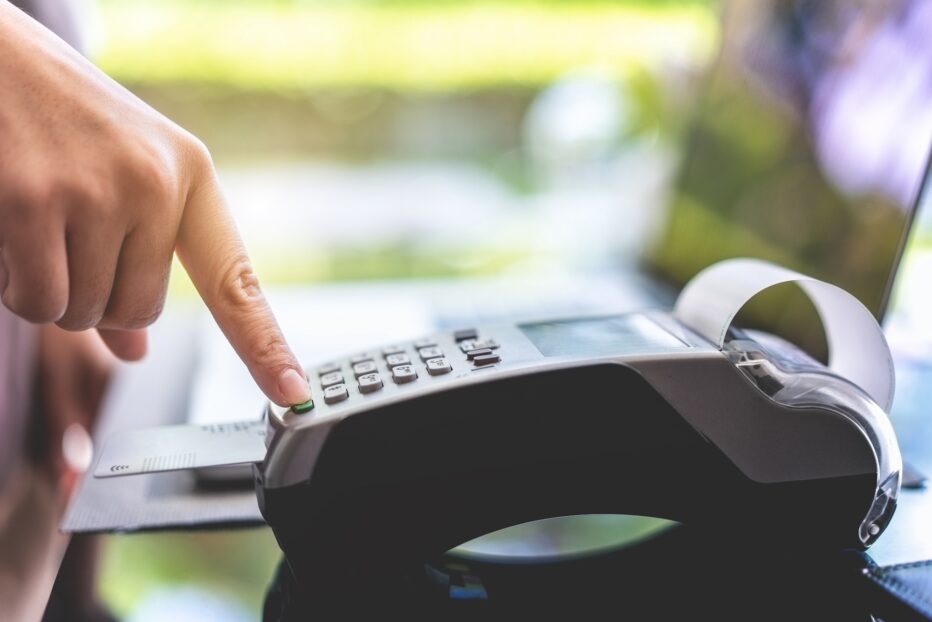YRITTÄJÄ, tule mukaan omiesi pariin! Liity Yrittäjiin.

How should restaurants treat tips in taxation?
Do you know how voluntary service charges – tips – are filed in the Incomes Register and on tax returns? The restaurant sector is critical of the guidance.
In the restaurant sector, there is a variety of practices regarding the reporting of voluntary service charges, also known as tips, for tax purposes. This is because of guidance from the Incomes Register which is not entirely clear.
Services charges are taxable income regardless of whether the business’s operations are taxed under the Income Tax Act or the Act on the Taxation of Business Income. According to Incomes Register instructions, a tip is treated as wages if it is given to a contractual employee, such as a waiter.
The business must file the tip in the Incomes Register using the income type “other paid compensation”, if the person is an employee. In this case, the assumption is that the tip is subject to taxation and ancillary costs. If the tip is given to a person who is not an employee, it is payment for work. In this case, the business uses the income type “payment for work” in the Incomes Register. However, a business only files tips in the Incomes Register if the tip recipient is not on the prepayment register.
“Tips must be processed in payroll accounting because of the social insurance contributions that must be paid, but in the main accounts they aren’t wages. They are not business expenses, as the tip was never income for the business,” says Markku Ojala, a senior expert at the Taloushallintoliittto, a nationwide accountant association.
“Employees decide among themselves”
Veli-Matti Aittoniemi, the deputy CEO of the hotel and catering trade body Mara, says the current situation is confusing for businesses.
“Some employers do the tax return for their employees if customers regularly pay service charges. For example, security guards may get all their earnings from service charges. In this case, the sole trader reports the sum in advance and pays advance tax on it. The final taxation settlement determines whether the sole trader gets a tax refund or pays back taxes. Aittoniemi says that it is more common for employees to report tips in their personal taxation.
“In such a case, the employer does not necessarily know how many tips the employee has received. Some employers don’t even want to know.”
Aittoniemi says a common practice in the restaurant sector is for employees to agree amongst themselves how the tips are shared.
According to the Incomes Register’s instructions, the employer does not have to withhold advance tax from tips. However, the employer must pay the employer’s social security contributions.
Service charges are income for pension purposes
- Employment income for the purposes of pensions includes service charges and gifts which the employer and employee have agreed are compensation for work.
- Service charges received from the public are considered in employment income for pension purposes to the same amount as in the previous taxation settlement, unless other information is provided. An employee who receives service charges from the public must inform their employer, who must then inform the pension provider, about the taxable amount of service charges. On this basis, the employer charges the employee a monthly employee’s pension contribution.
- A customer may also pay a staff member a service charge by card. In this case, the customer is charged the service when paying for their purchase, and the money goes to the employer’s bank account. The employer later pays it to the employee. Service charges which are compensation for work are employment income for pension purposes, regardless of how they are eventually paid to the employee.
Source: Finnish Centre for Pensions
No VAT on tips
Restaurant patrons generally pay tips using a card machine. When paying their bill, the machine asks whether the customer wants to pay a tip.
The card machine data are not automatically transferred to the Tax Administration. The card machine records the total amount of tips, not who gets the tips. Customers are asked about tips separately to distinguish the tip from the restaurant sales.
The Tax Administration says that voluntary service charges are not compensation for the sale of goods or services, meaning they are not subject to VAT. Thus, receipts show service charges without VAT. If, on the other hand, the charge is for a service priced in advance (such as a cloakroom charge), this is the sale of a service, on which VAT must be paid.
Contradictory instructions
Veli-Matti Aittoniemi says that tips are a hot topic at the moment across the Nordic countries.
“People are talking about it because it’s unclear that if tips are wages, do pension contributions and other ancillary costs have to be paid on them. Some tax authorities think that voluntary service charges ought to be treated like wages, because they’re income acquired through work. However, there’s no single official interpretation, which is why practices vary.”
Aittoniemi says that in Finland one business may get instructions from a tax inspector saying that ancillary costs have to be paid on tips. Another business may get instructions saying employees have to report tips in their personal tax returns.
“It shouldn’t be like this. Maybe we need a court to set a precedent to get a standard procedure in the sector.”
At the same time, Aittoniemi says, some restaurant customers find the tip option on card machines pressurizing.
“Finns don’t need to feel pressurized by that, because we don’t have a tip culture in Finland.”
Are you a Suomen Yrittäjät member yet? Read about member benefits and advantages

Pauli Reinikainen
pauli.reinikainen@yrittajat.fi